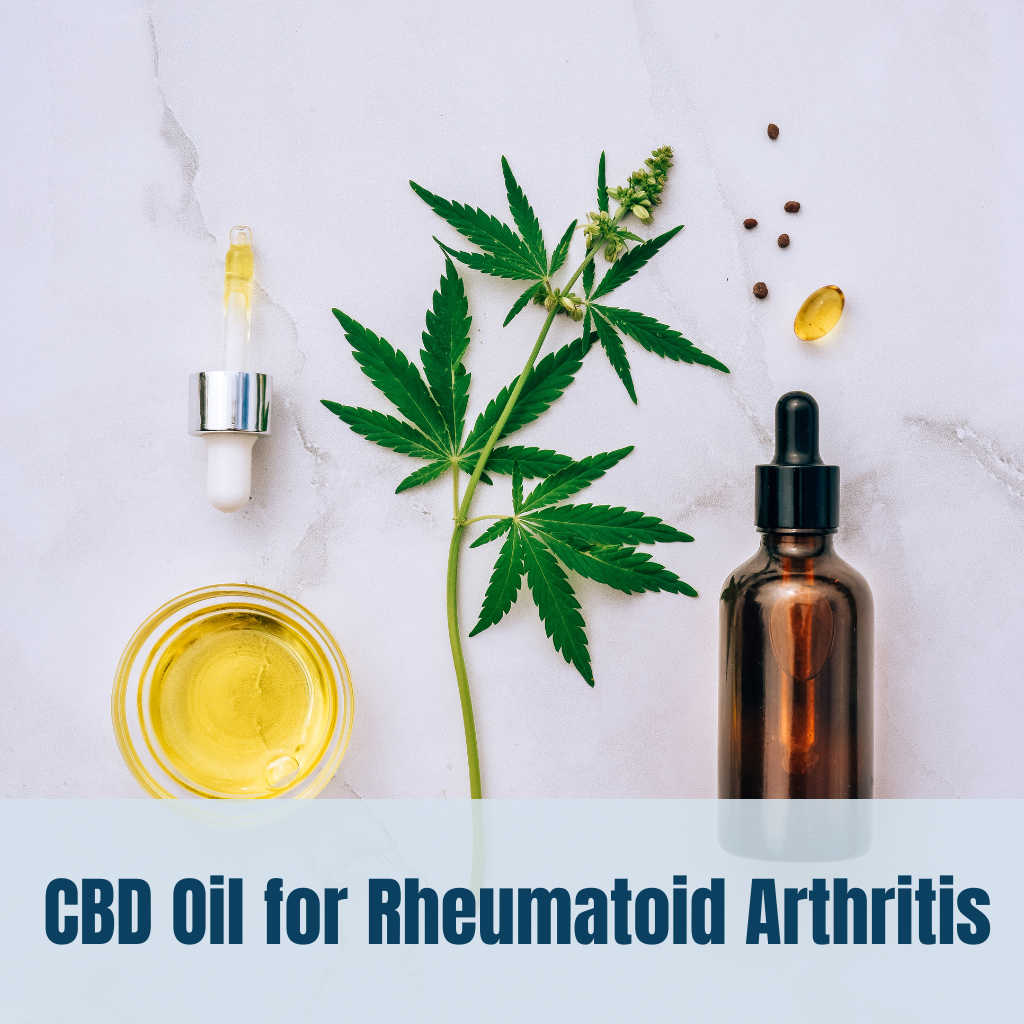SHARE
There’s growing scientific evidence that CBD (cannabidiol) can alleviate pain, inflammation, and other symptoms of Rheumatoid arthritis. In addition, research shows that CBD acts as a natural anti-inflammatory agent, with few to no side effects, unlike store-bought anti-inflammatory drugs (e.g. non-steroidal anti-inflammatory medications, NSAIDs). As a result, more patients are interested in using CBD oil for rheumatoid arthritis.
What is CBD Oil?
CBD (cannabidiol) is a non-psychoactive medicinal compound derived from the cannabis plant. Please note that CBD oil does not contain THC (tetrahydrocannabinol), which is responsible for marijuana’s psychological effect. So, CBD doesn’t cause the ‘high’ effect.
Did you know our body produces endocannabinoids similar to cannabinoids like CBD? The endocannabinoid system in the body regulates several key processes, including memory, mood, sleep, and pain perception.
Endocannabinoids and their receptors are found in our body’s cells, including immune cells. When cannabinoids bind to these receptors, they may fight inflammation or relieve pain, common symptoms of rheumatoid arthritis.
Benefits of CBD Oil for Rheumatoid Arthritis
Non-steroidal anti-inflammatory drugs (NSAIDs) are commonly used for Rheumatoid Arthritis. However, these drugs could cause side effects like heartburn, stomach ulcers, vomiting, liver and kidney problems. Many patients are interested in using CBD oil as a natural option, in avoiding these side effects.
CBD interacts with CB1 and CB2 receptors to decrease pain and inflammation. CB2 receptors play a significant role in our immune system.

CBD oil can reduce inflammation by limiting the reuptake of the neurotransmitter adenosine, an inhibitory neurotransmitter. As a result, increased adenosine in our brain impacts adenosine receptors in a way that drastically reduces inflammation.
An autoimmune response in the body of rheumatoid arthritis patients results in joint inflammation, which further leads to swelling and pain. Studies show that CBD can increase the function of inhibitory receptors in our central nervous system. This results in reduced inflammation and decreased perception of pain.
Importantly, CB2 activation decreases TNF-α levels, which reduces oxidative stress and inflammation. Therefore, it has been suggested that CBD may indirectly improve anti-inflammatory effects. Clinical studies have confirmed that CBD decreases the levels of pro-inflammatory cytokines, inhibits T cell proliferation, induces T cell apoptosis, and reduces migration and adhesion of immune cells.
CBD Oil for Rheumatoid Arthritis Fatigue
Fatigue in autoimmune disease is also a common symptom, mainly caused by ongoing inflammation. Uncontrolled rheumatoid arthritis is a sign of ongoing inflammation in the body. As mentioned above, CBD oil can reduce arthritis-related inflammation and, thus, reduce the immune system’s burden and save your body energy.
Rheumatoid arthritis may also disrupt your sleep pattern. Fortunately, studies have found that CBD oil may help improve patients’ sleep and increase daytime wakefulness.
Taking CBD Oil for Rheumatoid Arthritis
First and most importantly, make sure you talk to your rheumatologist or physician that you’re thinking about taking CBD oil. While CBD oil is relatively safe, it can interact with other medications you might be taking (e.g., antihypertensive medications, warfarin, anti-depressive, anxiolytics, and anti-epileptic drugs). So, always consider a consultation with your doctor.
The National Arthritis Foundation surveyed how people are using CBD. They reported that 61% used a liquid CBD form, while 55% used a topical product. In 2022, another study showed that the use of CBD use was associated with improvements in pain (83%), physical function (66%), and sleep quality (66%), especially in patients with osteoarthritis. That is why the National Arthritis Foundation released an official statement about using CBD for patients with arthritis:
- CBD may help with arthritis-related symptoms, such as pain, insomnia, and anxiety, but there have been no rigorous clinical studies on people with arthritis to confirm this.
- While no significant safety issues have been found with CBD when taken in moderate doses, potential drug interactions have been identified.
- CBD should never be used to replace disease-modifying drugs that help prevent permanent joint damage in inflammatory types of arthritis.
- CBD use should be discussed with your doctor in advance, with follow-up evaluations every three months or so, as would be done for any new treatment.
- There are no established clinical guidelines to inform usage.
- Buy from a reputable company that has each batch tested for purity, potency, and safety by an independent laboratory and provides a certificate of analysis.
As stated above, there are no universal dose recommendations when it comes to dosage. We suggest starting with a very small dose and seeing how your body reacts. Then, increase your dosage slowly and always stick to the recommended dose listed on your chosen product.
CBD oil might also be an alternative for patients suffering from rheumatoid arthritis. However, always be careful about the quality and quantity of the product you use, as more studies are needed to confirm the benefit of CBD oil for patients with Rheumatoid arthritis. CBD oil is not approved to replace the treatment of rheumatoid arthritis.














